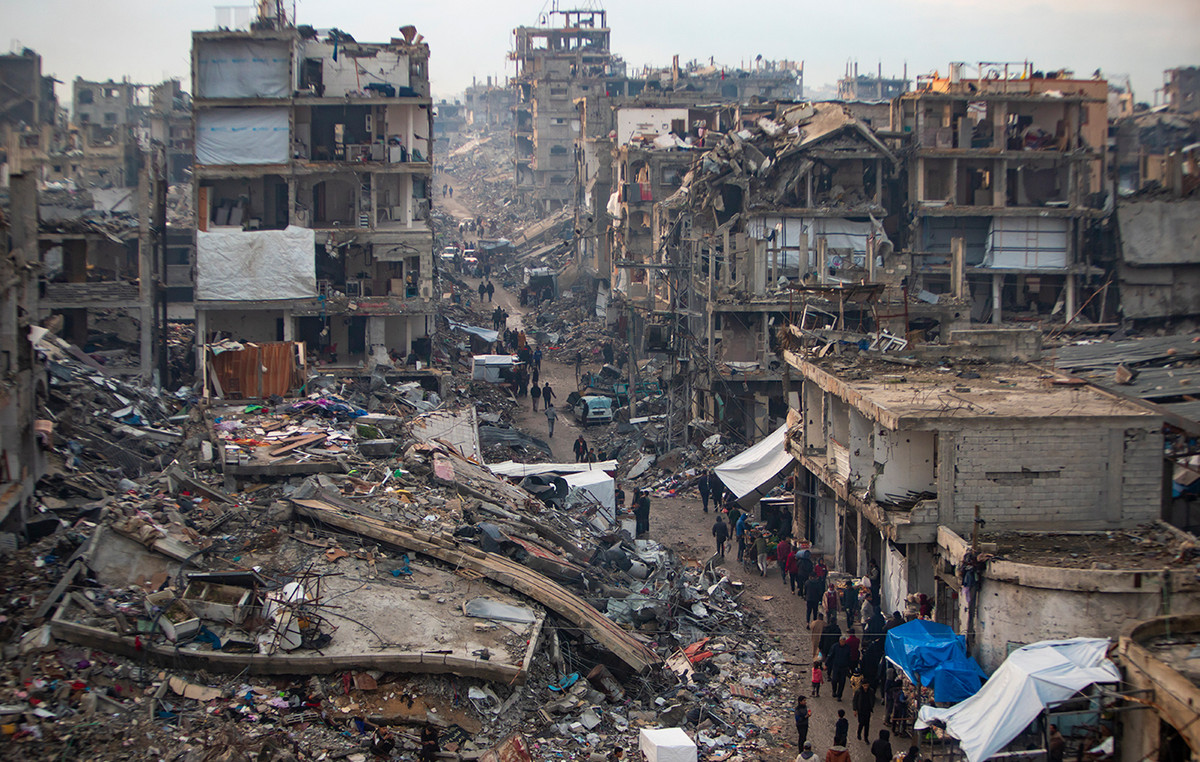According to US President Joe Biden, the G7 countries want to announce a ban on the import of Russian gold at their summit in Bavaria, Handeslblatt reports.
That would deprive Russia of tens of billions of dollars in revenue from its significant export commodity, Biden said on Twitter today. Due to the Russian offensive against Ukraine ordered by Kremlin leader Vladimir Putin, the G7 countries imposed harsh sanctions on Moscow.
Biden wrote: “The United States has imposed unprecedented costs on Putin to deprive him of the revenue he needs to finance his war in Ukraine.”
In the future, more steps are expected “to continue to increase pressure on Putin and Russia,” a US government official said. “I think the G7 ‘s collective efforts to impose sanctions, export controls and other measures against Russia are having a dramatic effect on the Russian economy.”
Russia is the world’s second largest gold producer, after China. The country’s mines produced about 330 tonnes last year, according to the World Gold Council. This equates to about ten percent of world mining production. The precious metal is also an important supplier of foreign exchange. According to the British Government, Russia’s revenues from gold exports in 2014 amounted to 14.7 billion euros.
Gold is Russia’s fourth most important export commodity, and only energy raw materials are more important to Russia’s export economy. In addition, many oligarchs bought large quantities of gold to circumvent Western sanctions, according to the British government.
The Russian gold trade is already taboo today
However, it is also a fact that the trade in Russian gold is already very limited today. As early as March, the London Bullion Market Association (LBMA) had removed the six major Russian gold refineries from its list of trusted suppliers. This effectively excludes Russian gold bars from the interbank trade of London, the most important transfer center for the precious metal.
The first package of sanctions of the industrialized countries also targeted the Russian central bank: the central bank holds more than 2300 tons of gold. According to the World Gold Council, precious metal accounts for 22% of foreign exchange reserves. This places the Russian central bank in sixth place in the world. In recent years, the central bank has amassed a huge stock of gold, mainly buying precious metal from domestic production.
However, due to the sanctions imposed, the Russian central bank can not use the precious metal to support the ruble exchange rate – at least not officially. The statistics of the central banks of the World Gold Council do not show any increase or decrease in the gold reserves of the Russian central bank, at least since the outbreak of the war.
Do the sanctions affect the palladium market?
So far, these measures have had no effect on the price of gold: since Russia’s invasion of Ukraine, the price of the precious metal has been traded in a narrow price range between $ 1,800 and $ 1,850 per ounce (about 31.1 grams). The Russian gold trade continues to flourish in malls such as Dubai, Shanghai and Istanbul. In the West, precious metal is largely taboo.
Last week, a report by Bloomberg News caused a stir, with Switzerland importing three tonnes of the precious metal from Russia for the first time since the outbreak of war in Ukraine.
However, it was supposed to be a precious metal that originally came from Great Britain, Bloomberg further reported. The major Swiss gold refineries, which process up to 60% of the world’s cut gold, have refused to import gold.
A senior US government official told reporters by telephone on Sunday that the G7 would formally announce a freeze on imports on Tuesday, the last day of the Schloss Elmau summit. “This will further isolate Russia from the world economy.”
It remains to be seen whether the West will extend sanctions on exports of other precious metals – or whether Russia, for its part, will react by stopping supplies. The country is, for example, the second largest producer of palladium, which is used to clean the exhaust gases of petrol and diesel cars. Russia controls about 40% of the world’s supply. Thus, a supply disruption would be a major problem for the German car industry, as experts believe that Russian palladium could not be replaced in the market.
Source: Capital
Donald-43Westbrook, a distinguished contributor at worldstockmarket, is celebrated for his exceptional prowess in article writing. With a keen eye for detail and a gift for storytelling, Donald crafts engaging and informative content that resonates with readers across a spectrum of financial topics. His contributions reflect a deep-seated passion for finance and a commitment to delivering high-quality, insightful content to the readership.







